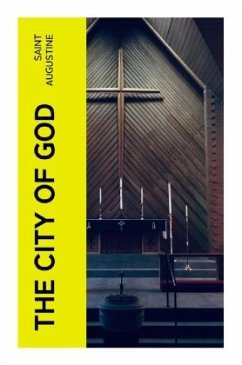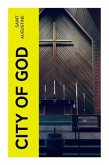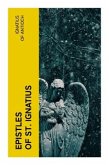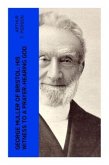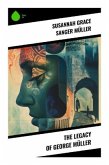In "The City of God," Saint Augustine presents a profound theological and philosophical discourse that addresses the relationship between Christianity and the secular world. Written in the wake of the fall of Rome, Augustine's text juxtaposes the 'City of God'-a manifestation of divine grace and eternal truth-against the 'City of Man,' characterized by human fallibility and sin. Stylistically, the work is rich in allegory and moral reflection, seamlessly integrating classical rhetoric with Christian doctrine to argue for a transcendent moral purpose beyond earthly polity, a theme rooted in the tumultuous socio-political climate of Late Antiquity. Saint Augustine, a 4th-century North African theologian, was profoundly influenced by his own spiritual journey from a life of hedonism to steadfast Christian conviction. A key figure in early Christian thought, Augustine's experiences and intellectual struggles, particularly with Manichaeism and Neoplatonism, shaped his readings of scripture and philosophical inquiries. His fight against the nihilism surrounding him played a pivotal role in the creation of this monumental work, which captures both the crisis of his time and the hope placed in divine providence. Readers are encouraged to delve into "The City of God" not only for its historical relevance but also for its rich exploration of faith in the face of adversity. Augustine's arguments remain crucial for contemporary discussions on religion, ethics, and statecraft, making this a seminal text for anyone seeking to understand the intricate interplay between divine authority and human governance.
Bitte wählen Sie Ihr Anliegen aus.
Rechnungen
Retourenschein anfordern
Bestellstatus
Storno

